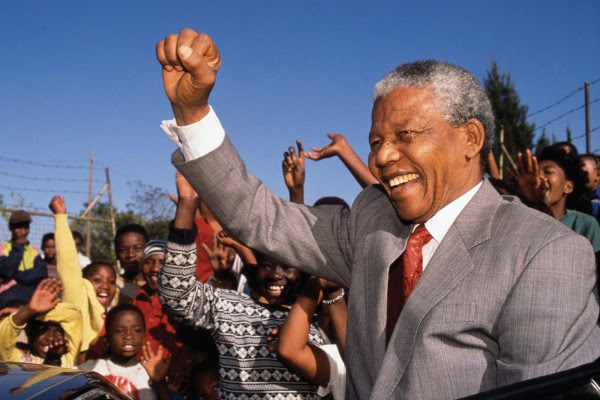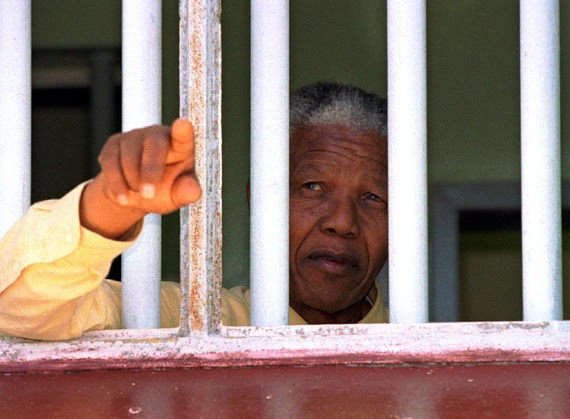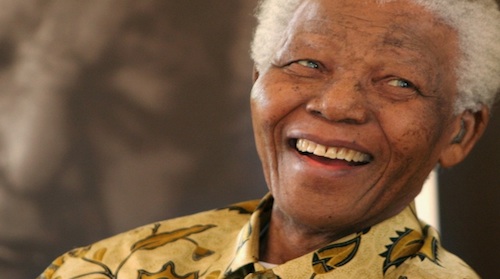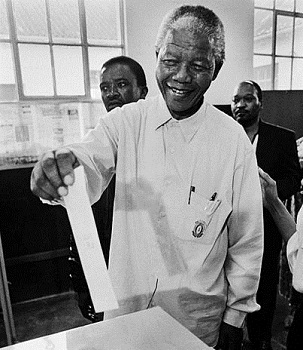
John Nichols
December 06, 2013
Beloved former South African president Nelson Mandela left a legacy of union support and solidarity with organized labor.

John Nichols
December 06, 2013
Beloved former South African president Nelson Mandela left a legacy of union support and solidarity with organized labor.
by Danny Schechter
What’s the difference between a liberation movement and a band of terrorists? The simple answer . . . is point of view. Consider the African National Congress (ANC).

by Kumi Naidoo
Nelson Mandela was never really a prisoner, but a free man always, and now, forever. As a South African, a comrade in the struggle to liberate my homeland from the evil of apartheid and a citizen of the world, my heart is heavy today.

By Kiran Moodley
I am too young to remember February 11, 1990, the day when Nelson Mandela left Victor Verster Prison after spending a total of 27 years behind bars.
By J. George M. Walters-Sleyon
There is a generation that does not know its history. Encumbered by wealth, poverty, sociopolitical, economic and racial marginalization, they have forgotten the legacies of their ancestors and their narrative.

By Greg Mitchell
When I was senior editor at Crawdaddy—for most of the 1970s—I convinced Gil Scott-Heron to become an occasional columnist.
By Qaanitah Hunter and Estelle Ellis
JOHANNESBURG/PORT ELIZABETH,- As the world mourns the passing of South Africa’s first democratically elected president, Nelson Mandela, his close friend and political stalwart Tokyo Sexwale says much needs to be done to honour his legacy.
By ZAKES MDA
I REMEMBER Nelson Mandela. No, not the universally adored elder statesman who successfully resisted the megalomania that comes with deification…
By DeWayne Wickham, USATODAY
When Nelson Mandela arrived in New York City four months after his 1990 release from detention after 27 years in a South African prison, he was widely – and wrongly – seen as just the leader of an African struggle for self-determination. But as I quickly learned, he was much more than that.

By By Louis Freedberg,
As a teenager growing up in Cape Town in the 1960s, a favorite weekend activity was climbing to the top of Table Mountain, the glorious promontory at the end of the African continent.
By Max Fisher
Nelson Mandela was already 45 years old when, on April 20, 1964, he gave the defining speech of the anti-Apartheid movement, from the dock of a Pretoria courtroom.

By BILL BERKOWITZ
Last night, it was difficult to cut through the fog of reaction from current day conservatives to the death of Nelson Mandela.